-

Focus on Athenian maker projects by dpr-barcelona

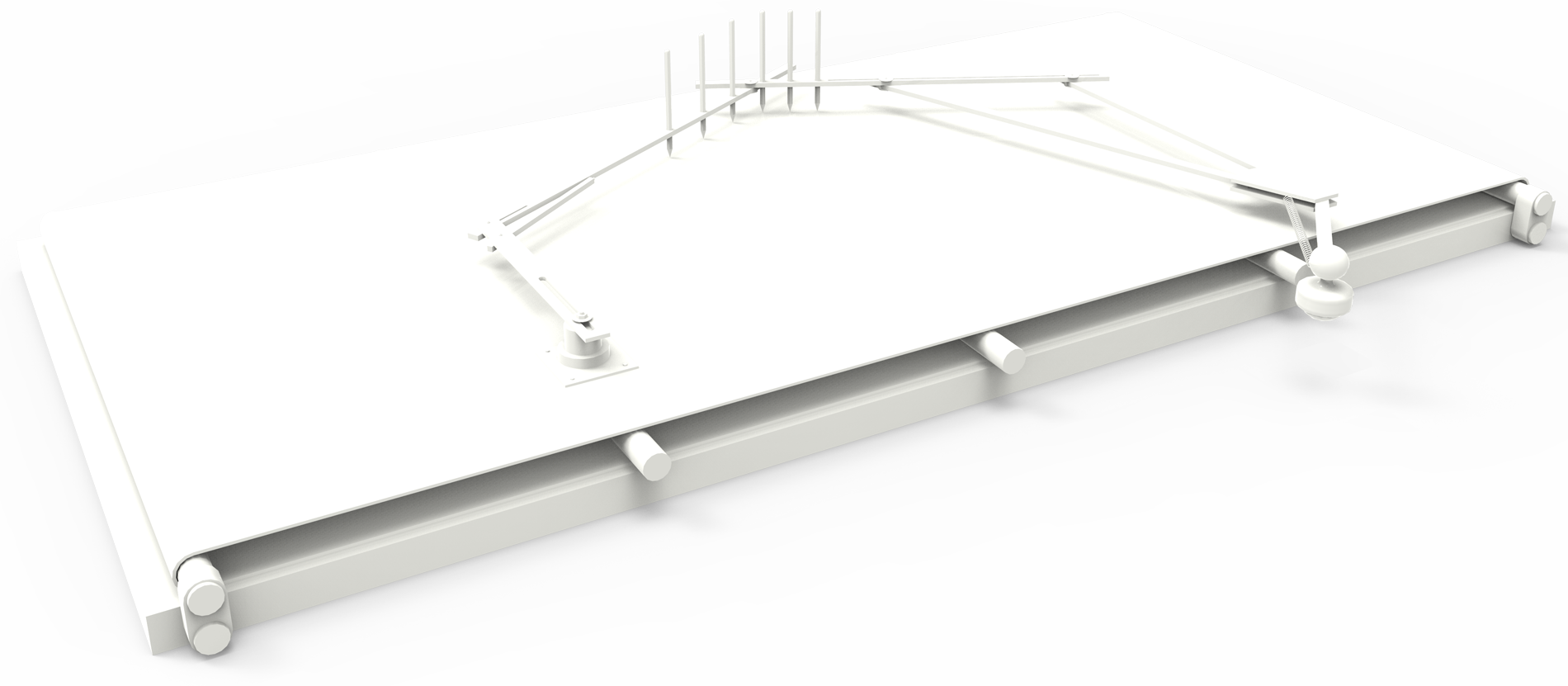
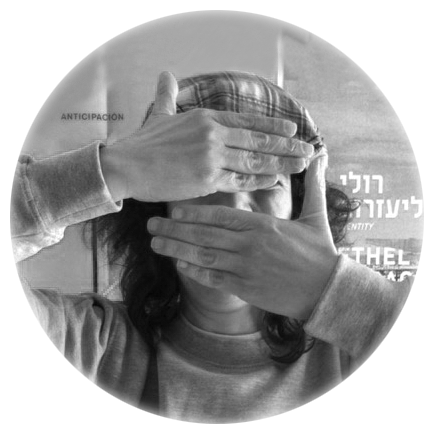
-
As curators of the 2015 exhibition and symposium Adhocracy Athens uncube asked dpr-barcelona (Ethel Baraona Pohl and César Reyes Najéra) to focus on a selection of maker projects from groups “who are guided by the will to change the system by changing the way they make things themselves”.
dpr-barcelona (Ethel Baraona Pohl and César Reyes Nájera) is an architectural research practice based in Barcelona, dealing with three main lines: publishing, criticism and curating. They are the curators of the 2015 exhibition and symposium Adhocracy Athens.
The Adhocracy exhibition and symposium at the Onassis Cultural Centre in Athens in 2015 was focused on the relation of design, culture, and society within a global approach, but based on the dynamics of the local art, architecture and design. Adhocracy highlighted achievements by makers who are guided by the will to change the system by changing the way they make things themselves. It includes examples of makers whose work embraces open source design, and particularly emphasizes the idea of the commons in relation to production. Adhocracy Athens is the continuation of the research started for the 1st Istanbul Design Biennial in 2012, curated by Joseph Grima and associate curators Ethel Baraona Pohl, Elian Stefa, and Pelin Tan.
Adhocracy, as a concept, is nothing new. However, the term itself was coined in 1968 by Warren Bennis in his book The Temporary Society, and by 1970 had been made popular by the hand of Alvin Toffler and his international bestseller, Future Shock. Often used in the field of business, the concept became known as “adhocism” in the context of architecture and design in 1972, when Charles Jencks and Nathan Silver wrote a book with the same name. In it, Jencks wrote: “Adhocism is the art of living and doing things ad-hoc – tackling problems at once, using materials at hand, rather than waiting for the perfect moment or “proper” approach.”
The current socio-political and economic situation in Athens is going through a difficult moment that is not without controversy. The struggles and riots of recent years generated enough pressure to provoke a referendum on an EU bailout deal for the debt crisis, but this pressure wasn’t strong enough to translate the result of the vote – in which the Greek people rejected the austerity conditions of the proposed deal – into reality. The current local political and economic situation connected with the global approach of the networked society, along with the need to respond to that uncomfortable and unfair situation, has become a catalyst for several grassroots movements, collectives and independent groups that we show here. The examples we have chosen are those that are translating the concept of adhocracy into action: transforming a noun into a verb.
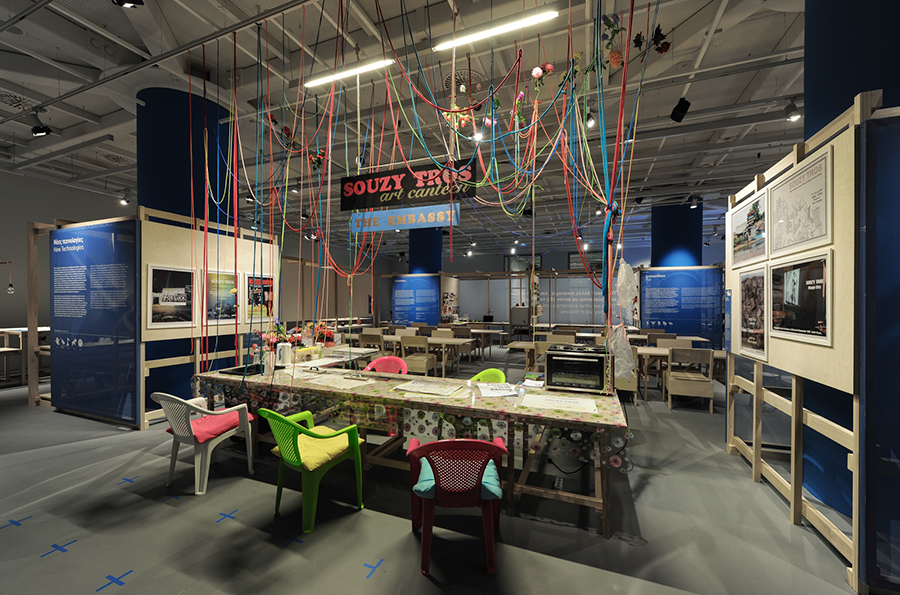
Exhibition view of Adhocracy Athens, 2015 (All images courtesy Adhocracy Athens, unless otherwise stated)
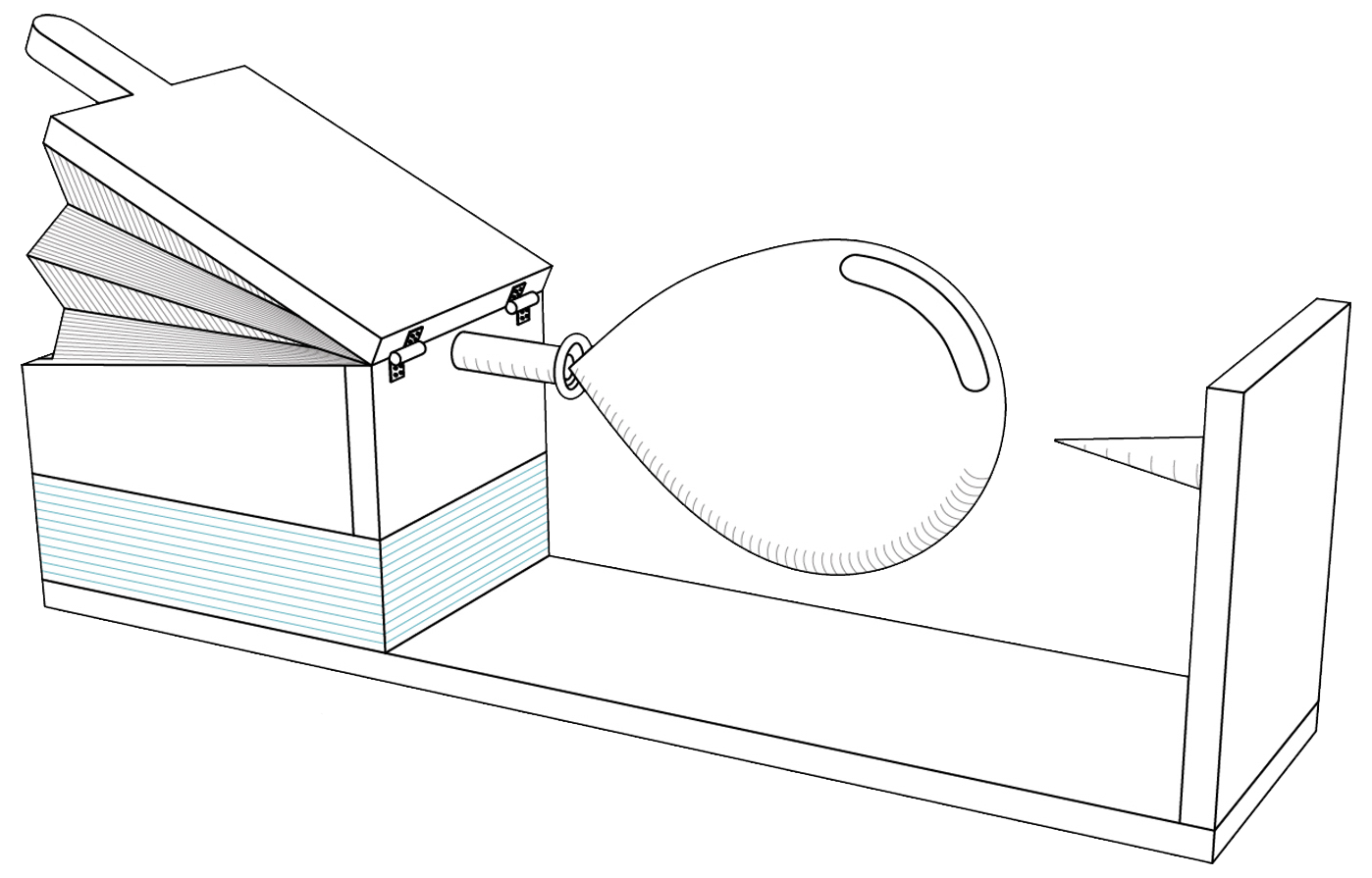
-
TRACES OF COMMERCE
—Following the financial crisis, Athens’ network of ground-floor spaces, that once housed the steaming engine of its local urban economy, has become a redundant landscape of vacancy. Urban space in many European cities has become increasingly monetised by private companies, but at the same time there has been renewed interest in approaches that transcend the rhetoric of law and urban policy; where the value of an empty plot or a derelict building is not defined solely by traditional economic metrics but is also determined according to the social relationships it can create and for the informal (or even immaterial) economic activity that can emerge there.
Against this backdrop, the Traces of Commerce project has brought activity back to one such vacant public space of Athens, the Stoa Emporon (Arcade of Merchants). In 2013 it was a stagnant, dead zone in the heart of the city, its small shops devoid of any commercial activity for more than a decade. Now it has been transformed into a transparent space of creativity and collaboration.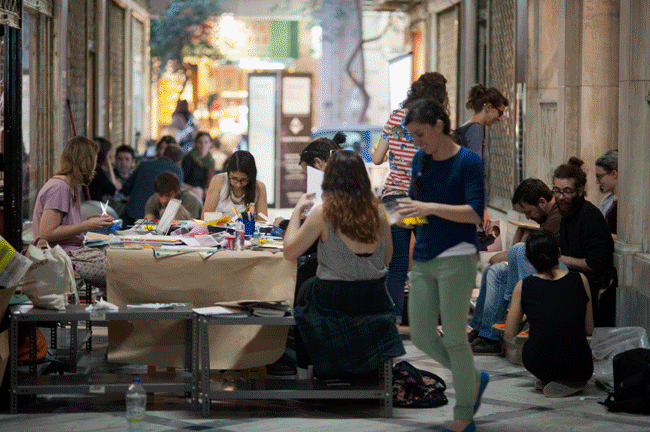
-
NATIVE PRODUCTS
—The subject of food commands increasing attention from the fields of architecture and design, especially how it affects life in cities, from distribution infrastructures to domestic space. Since ad hoc processes allow people to do away with the language of marketing and challenge the rules of consumerism, it’s easy to find a relationship between food and an understanding of activity related to the “commons”, namely, the pooling and sharing of a set of resources. It’s also a good starting point from which to raise awareness about issues such as product lifecycles, ethical design, labour value, and connections between the local and the global.
Native Products is a workshop project created by papairlines who describe themselves as “the world’s first no-budget airline”, operating metaphorical “design flights” for their design, research and curatory practice. Attendees learn about the narrative of product lifecycles, design and ethical production by participating in the entire process, using nothing more than a few household tools and plants.
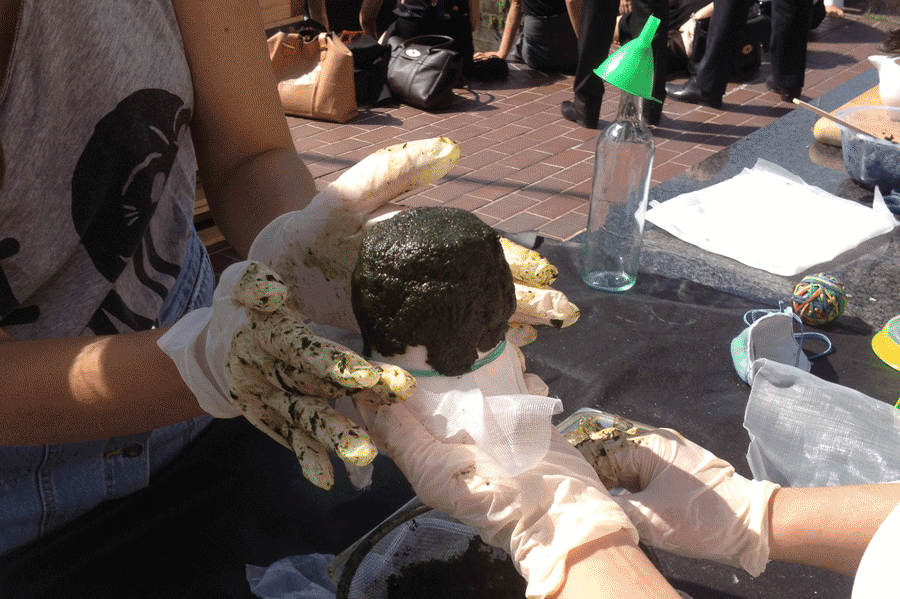
-
PO.IN-INC.
(POINTLESS INVENTIONS
INCORPORATED)
—Every day we see new trending technologies emerge from the fast-spreading, networked, digital realm. Large communities are often quick to adopt and then proclaim these new concepts to be “the most important innovation in years”. But it’s important not only to reflect critically on the techno-fetishism that surrounds the machines we create, but also to try and understand how the unconditional trust we have in technology can sometimes be counterproductive.
How many objects do you own without ever having really needed them? How many appliances do you own that are dysfunctional in design? To highlight the scale of wasteful manufacture of useless objects, Po.In-Inc., have proposed a series of DIY projects, such as their Universal Doodling Machine or the Drowning Mask, which deliberately aim to generate frustration. Created through an utter lack of necessity as a possible remedy to our ravenous accumulation of objects, they explore ways of making products that don’t work, malfunction or simply fall apart.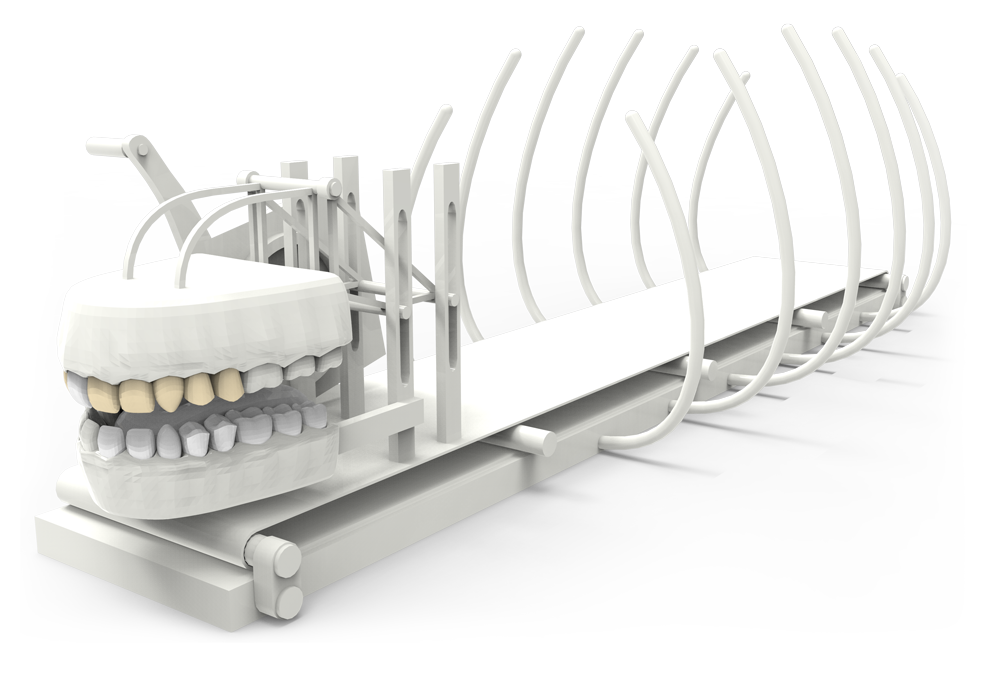
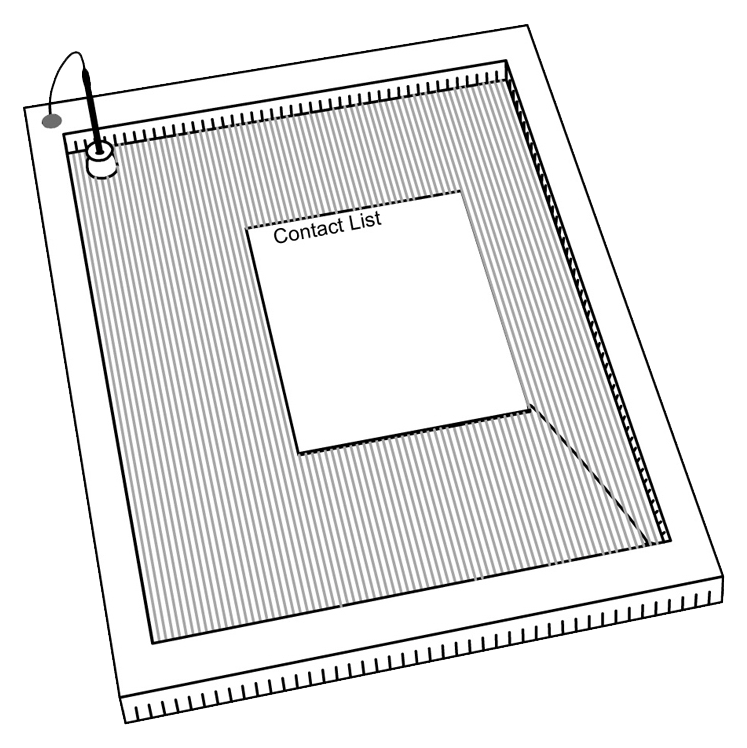
-
SOUZY TROS
—In a set of dilapidated rooms in a former industrial complex in the Elaionas district, a collaborative project named Souzy Tros has been making a name for itself. It is a food and culture canteen dispensing “democratic hospitality” under the motto “Loveless – Hot Trahanas” (trahanas is a simple Greek soup made from cracked wheat and fermented milk). The project is the brainchild of artist Maria Papadimitriou, whose work is often concerned with the creation of a dialogue between different groups in society, and, on a broader scale, the position of Greece within Europe.
At Souzy Tros the extraordinary is demanded from ordinary actions, allowing guests to experience urban cooperativeness both as solidarity through action, and as a subject of conversation. It is a space where the act of sharing – food, conversation, space, performance, etc. – becomes the most “radical” act, the one most able to change our notion of “society”.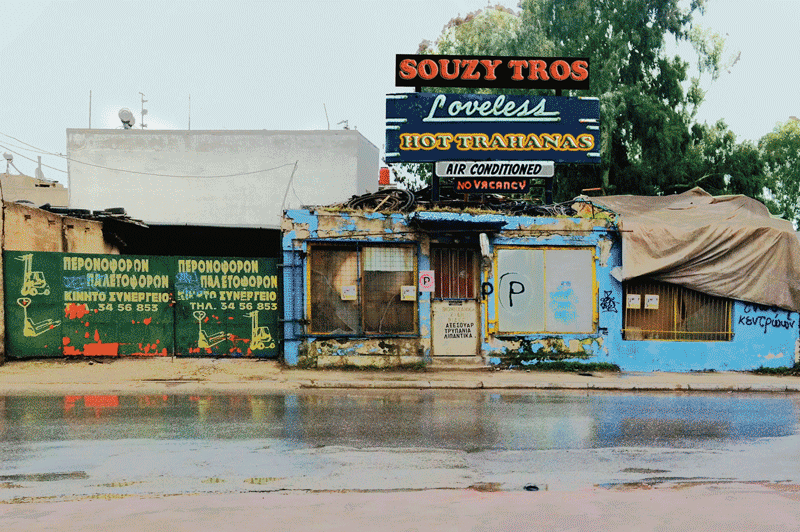
-
ATHENS WIRELESS
METROPOLITAN NETWORK
—The gap between those who have an easy access to broadband services and those with no possibility to connect, either for economic reasons or due to the shortage of services in some areas of the Athens is a very real economic inhibitor. Despite the fact that the UN Human Rights Council deems freedom of expression and access to the internet to be a basic human right in 2011, the reality still is that there are many cities, or spaces in cities, lacking internet infrastructure.
Back in 2002, a grassroots initiative called the Athens Wireless Metropolitan Network (AWMN) was founded to provide wireless services based upon the protocols and philosophy of open-source software. The scheme has since expanded into a broad informal network of IT enthusiasts and professionals of all ages who have set up hundreds of active nodes a geographical reach that extends beyond the Greek border. Participation at all levels is open and free. This is a good example of adhocracy filling a gap when bureaucracy is too slow to provide a service. I
awmn.net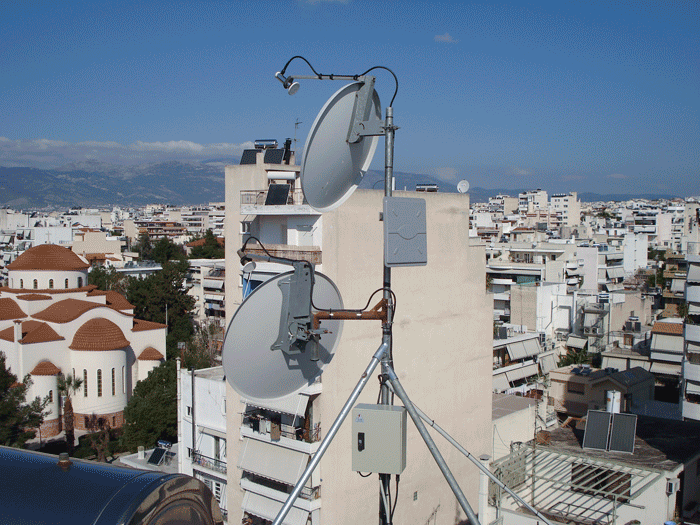
-
Search
-
FIND PRODUCTS
PRODUCT GROUP
- Building Materials
- Building Panels
- Building technology
- Façade
- Fittings
- Heating, Cooling, Ventilation
- Interior
- Roof
- Sanitary facilities
MANUFACTURER
- 3A Composites
- Alape
- Armstrong
- Caparol
- Eternit
- FSB
- Gira
- Hagemeister
- JUNG
- Kaldewei
- Lamberts
- Leicht
- Solarlux
- Steininger Designers
- Stiebel Eltron
- Velux
- Warema
- Wilkhahn
-
Follow Us
Tumblr
New and existing Tumblr users can connect with uncube and share our visual diary.
»Intelligence starts with improvisation.«
Yona Friedman
Keyboard Shortcuts
- Supermenu
- Skip Articles
- Turn Pages
- Contents


